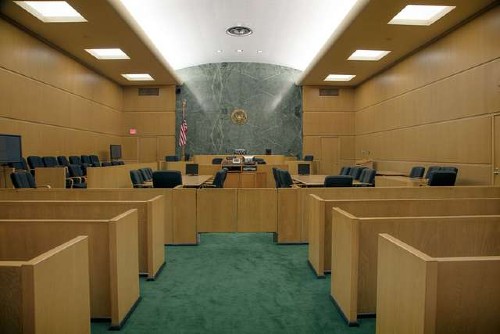
While questions on the role of religion in American politics never go completely away, there’s an ebb and flow to the public conversation. The election of US Mike Johnson (R-LA) as Speaker of the House of US Representatives looks like a “high tide” moment.
Johnson’s an unabashed Christian nationalist who’s pro-life, anti-LGBTQ, pro-Israel on “biblical prophecy” grounds, and opposes the “so-called” constitutional/Jeffersonian principle of separation of church and state: “The founders wanted to protect the church from an encroaching state,” he says, “not the other way around.”
Not unexpectedly, he’s experiencing pushback from various corners, including more than 12,000 Christians who’ve signed a petition denouncing him as a “false prophet” who “doesn’t speak for” them.
I’m a fan of keeping the state separate from pretty much everything, especially religion. There’s pretty strong historical grounding for believing that’s what the people who created the system we live in intended. In addition to Jefferson’s letter to the Danbury Baptists, in which he posited a “wall of separation,” the 1796 Treaty of Tripoli is clear: “[T]the Government of the United States of America is not, in any sense, founded on the Christian religion.”
On the other hand, if we’re going to allow the federal government to exist at all, I’m with those guys, who also ordered that “no religious Test shall ever be required as a Qualification to any Office or public Trust under the United States.”
I’m not concerned with Johnson’s beliefs. In fact, since he’s a politician, I consider it foolish to assume that they bear any resemblance to his claims. For all I know he’s a closet Muslim, a secret atheist, or, most likely, a narcissist who sees God in the mirror when he shaves each morning.
His actions, however, are a different story.
When Johnson came to Congress, he swore an oath (in defiance of biblical command, by the way — Matthew 5:33-37) to “support and defend the Constitution.”
That oath obligates him to certain things even if the Constitution contradicts his interpretation of scripture.
If it’s impossible to be true to both, he needs to pick one.
If he can’t bring himself to do the job as he swore to do it, he should resign rather than betray his oath, and certainly rather than seek and accept the position of Speaker.
Unfortunately, he seems to have missed 1st Corinthians 10:21: “Ye cannot drink the cup of the Lord, and the cup of devils.”
Thomas L. Knapp (Twitter: @thomaslknapp) is director and senior news analyst at the William Lloyd Garrison Center for Libertarian Advocacy Journalism (thegarrisoncenter.org). He lives and works in north central Florida.
PUBLICATION/CITATION HISTORY


